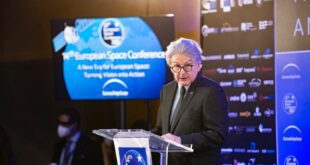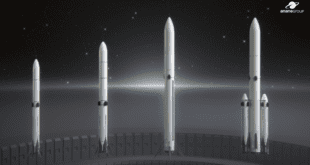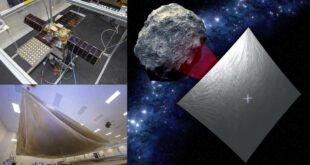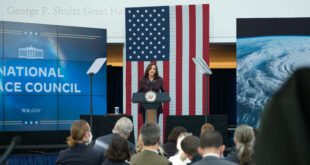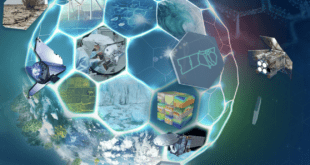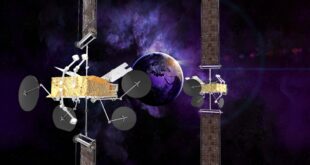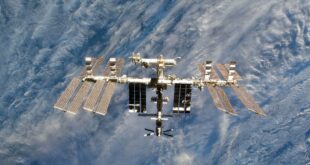Europe has to accelerate the development of its space assets and architectures to “weigh in on the global stage”, the European commissioner for internal market, Thierry Breton, said. The commission will therefore launch the European Space Launcher Alliance, the "first ever" Space Partnership and a European Space & Defence Strategy, he said.
Read More »ArianeGroup presents launcher family with reusable mini rocket
ArianeGroup develops the concept of a new European launcher family with a reusable first stage and a new mini launcher called Maia, the company said. The family consists of a mini launch vehicle with a reusable first stage, a medium-heavy launch vehicle, a heavy launch vehicle and a super-heavy launch vehicle that uses the first stage of the mini launch vehicle as a booster, ArianeGroup said.
Read More »NASA to launch scout mission to near Earth asteroid 2020GE
NASA will launch a mini asteroid scout mission called NEA Scout with the uncrewed first Artemis testflight in spring, the agency said. The target is 2020 GE, a near-Earth asteroid that is less 18 meters in size; asteroids smaller than 100 meters have never been explored up close before, NASA said. NEA stands for near Earth asteroid.
Read More »Harris wants US Space Council to tackle climate crisis
U.S. Vice President Kamala Harris charged the National Space Council to focus on the rules and norms governing space, leveraging space to tackle the climate crisis, and building a diverse space and STEM workforce, NASA said. The agency also announced a “strategic, first-of-its-kind partnership" with the European Space Agency (ESA) to observe Earth, its climate and changing environment.
Read More »ESA wants to accelerate Europe’s access to space
The European Space Agency (ESA) wants to accelerate the use of space in Europe with an annual budget of € 7.15 billion, the agency said. The largest envelopes are invested in Earth Observation (€ 1.6 billion), Navigation (€ 1.5 billion), and Space Transportation (€ 1 billion). Copernicus suffers a budget shortfall of € 750 million due to the withdrawal of the UK.
Read More »Europe spent $2 billion on government satcom, Euroconsult says
Governments around the world spent $6.6 billion on government telecommunications programs in 2021, Euroconsult said. European countries spent over $2 billion on satcom, with France, the UK and Germany as leaders. Over the decade, governments worldwide are forecasted to invest over $70 billion in both civil and defence satellite communications systems.
Read More »Hispasat and Repsol Foundation partner in reforestation project
The Spanish satellite operator Hispasat partners with the Repsol Foundation to develop technologies for the reforestation sector to offset CO2 emissions. Hispasat and Repsol signed a strategic partnership agreement to use the satellite operator’s technology in Repsol’s Green Engine project, Spain’s largest reforestation program for offsetting emissions.
Read More »Intelsat orders two 5G next-gen satellites from Thales
Intelsat buys two software-defined satellites from Thales Alenia Space, the satellite operator said. The two satellites will advance Intelsat’s software-defined 5G GEO network and enables “greater agility, flexibility and orchestration across edge, satellite and core”, Intelsat said.
Read More »Anna Christmann named German aerospace coordinator
The new German government has nominated Anna Christmann from Bündnis 90/Die Grünen as Coordinator of the Federal Government for German Aerospace. She succeeds Thomas Jarzombek from Düsseldorf, member of Bundestag since 2009 for the christian democrats CDU. The German aerospace coordinator sits within the Ministry of Economy and Climate Protection in Berlin.
Read More »U.S. extends ISS commitment through 2030
The U.S. committed to extend the operations of the International Space Station (ISS) through 2030, NASA Administrator Bill Nelson announced. The Biden-Harris Administration wants to continue to work with its international partners “to enable continuation of the groundbreaking research being conducted in this unique orbiting laboratory through the rest of this decade”.
Read More » SpaceWatch.Global An independent perspective on space
SpaceWatch.Global An independent perspective on space

